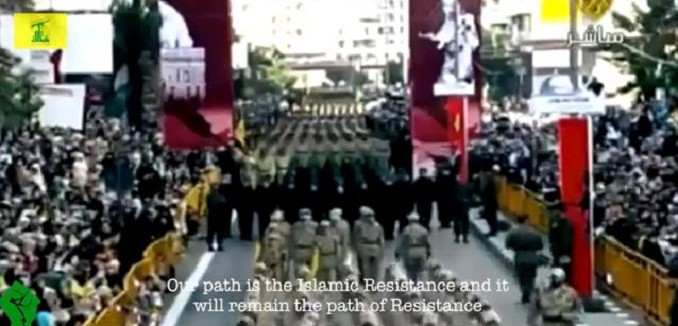The European Union is reportedly poised to blacklist the military wing of Hezbollah as a terrorist organization, following a formal request from the United Kingdom to pursue such a designation.
Any of the E.U.’s 27 member states can veto a designation, and France and Germany have both historically blocked such moves.
Recent months, however, have seen authorities in multiple E.U. countries pile on evidence that Hezbollah conducts terror-related activities on E.U. soil. Bulgarian authorities have linked Hezbollah to a 2012 terrorist attack in the Bulgarian resort city of Burgas that killed five Israelis and a Bulgarian, and a Cypriot court changed the diplomatic equation, leading E.U. officials to separate Hezbollah’s political and military wings in order to blacklist the latter.
The result was a wave of analysis blasting the E.U.’s position as untenable:
Out of a combination of fear, wishful thinking, and misguided political realism, Europe has developed a view of Hezbollah designed to justify its inaction. Put simply, Europe’s rose-colored view of the terrorist organization has become a custodian of the status quo. The lone exception to this is the Netherlands, which classified Hezbollah as a terrorist group in 2004.
Focus will now shift towards the degree to which that separation can be usefully maintained.
Hezbollah Deputy Secretary-General Naim Qassem has denied that there is any distinction within Hezbollah:
The buzz in Europe is that a designation is increasingly likely, but that the EU will only sanction the military wing. The very concept of a bifurcated Hezbollah is something that many other countries reject, including Israel, Canada, the United States, and the Netherlands. But it is also worth recalling that Hezbollah deputy leader Naim Qassem also rejects it. He told in the Los Angeles Times in 2009 that the “same leadership that directs the parliamentary and government work also leads jihad actions in the struggle against Israel.”
The point has been confirmed by experts who have mapped out Hezbollah’s leadership hierarchy:
According to a CIA document, even before Hassan Nasrallah rose to the position of secretary-general in 1992, he was “directly involved in many Hizballah terrorist operations, including hostage taking, airline hijackings, and attacks against Lebanese rivals.”
Time and again, Hezbollah’s political personalities have been tied to the group’s terrorist and criminal activities… Meanwhile, in meetings in Lebanon and the United States, Hasan Antar Karaki’s associate, Hassan Hodroj, a Hezbollah spokesman and the head of its Palestinian issues portfolio within the group’s political echelon, sought to procure a long list of sophisticated weapons in a black-market scheme involving Hezbollah operatives across the globe. According to court documents, Hodroj wanted “heavy machinery” for the “fight against Jews and to protect Lebanon.” But move forward with caution, Hodroj counseled an undercover FBI source, because someone in the United States could “go to jail for 100 years” if caught dealing with Hezbollah.
In light of cases like this one, in which people overtly affiliated with Hezbollah’s political activities are engaged in criminal and terrorist activities, it becomes increasingly difficult to separate Hezbollah’s overt activities from its covert behavior. “Little is known about [the Hezbollah military wing’s] internal command hierarchy,” a Western government report noted in 2012, “due to its highly secretive nature and use of sophisticated protective measures.”
[Photo: Ziad B / Youtube]




